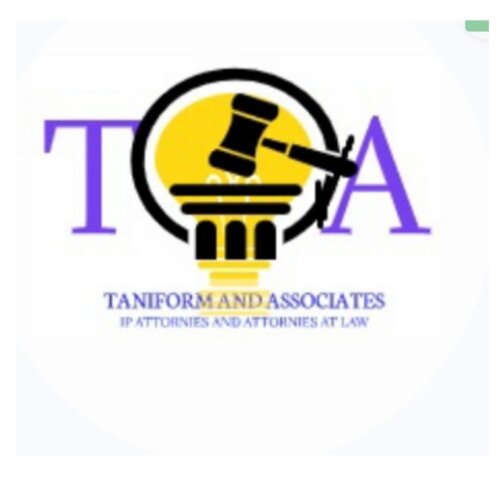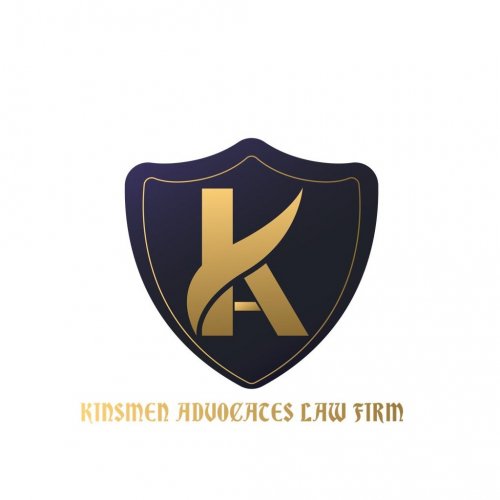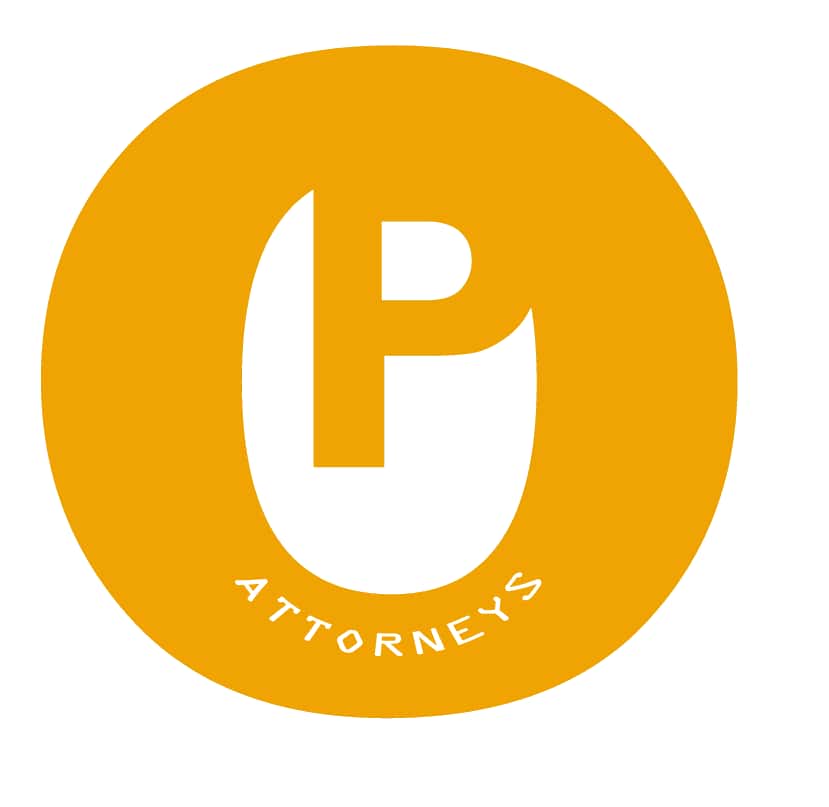Best Labor Law Lawyers in Cameroon
Share your needs with us, get contacted by law firms.
Free. Takes 2 min.
Or refine your search by selecting a city:
List of the best lawyers in Cameroon
Legal guides written by CHI & Partners Law Firm:
- Ship Registration in Cameroon

Taniform and Associates IP Attorneys and Attorneys at Law
15 minutes Free ConsultationAbout Labor Law in Cameroon
Labor law in Cameroon regulates the relationship between employees, employers, trade unions, and the government. Its primary purposes are to fulfill the needs of workers, develop socio-economic growth, and maintain industrial peace. This body of law focuses on matters such as contracts of employment, minimum wage, working hours, holidays, health and safety, discrimination, harassment, and termination of employment, among others. Additionally, the labor law in Cameroon is influenced by international laws and conventions, substantially from the International Labor Organization. Understanding these laws and their implications can be complicated, and therefore, requiring a lawyer in this field may be essential.
Why You May Need a Lawyer
Engaging a lawyer experienced in labor law in Cameroon can be crucial under various circumstances. For instance, you may be dealing with wrongful termination, discrimination or harassment at the workplace. A lawyer can provide critical advice and representation in such instances. Workers may also seek legal assistance when negotiating employment contracts or during disputes over wages, benefits, or working conditions. Employers can benefit from legal counsel to ensure compliance with labor regulations and to handle employee disputes or workers' compensation claims.
Local Laws Overview
In Cameroon, employment relationships are majorly regulated by the Labor Code (Law No. 92/007 of 14th August 1992). Some of the key aspects of the Cameroonian labor law include the following: 1. All employment contracts must be in writing, and they can be either fixed-term or indefinite-term contracts. 2. The standard work hours should not exceed 40 hours per week for day workers and 24 hours per week for night workers. 3. Pregnant women are entitled to 14 weeks of maternity leave. 4. Employees have the right to join or form trade unions. 5. Termination of employment should be done according to the particulars of the employment contract and labor laws. 6. It's unlawful to discriminate against an employee based on race, color, religion, sex, political opinion, national extraction, or social origin. Understanding these laws and their application in specific circumstances can be complex, but a knowledgeable lawyer can provide clarity and ensure your rights are protected.
Frequently Asked Questions
Are all employment contracts in Cameroon required to be written?
Yes, according to the Labor code in Cameroon, all employment contracts must be in writing.
How many hours are considered full-time employment in Cameroon?
Full-time employment during the day should not exceed 40 hours per week; for night shifts, it’s 24 hours per week.
Are employees in Cameroon entitled to severance pay upon termination?
Yes, employees are entitled to severance pay upon termination, provided they have completed a minimum period of service which varies according to categories of workers.
Can an employee be terminated without notice in Cameroon?
Employers must provide notice before terminating an employment contract, except in cases of gross misconduct.
Is it lawful to discriminate against an employee in Cameroon?
No, it's unlawful to discriminate against an employee based on race, color, religion, sex, political opinion, national extraction, or social origin.
Is maternity leave paid in Cameroon?
Yes, women are entitled to 14 weeks of fully paid maternity leave.
Can an employee in Cameroon join a trade union?
Yes, the law allows employees to freely join or leave a trade union.
Who handles labor disputes in Cameroon?
Labor disputes are generally handled by the Labor Commissioner or the Industrial Tribunal.
Can foreign nationals work in Cameroon?
Yes, However, they may need to secure work permits and fulfill other requirements as stipulated by law.
What is the minimum wage in Cameroon?
As of 2020, the minimum wage in Cameroon is 36,270 CFA francs per month.
Additional Resources
In addition to consulting a legal professional, there are numerous resources one may consider for additional insights. Some important entities include the Ministry of Labor and Social Security (MINTSS) which is responsible for all labor matters in Cameroon, and the National Institute of Labor (INCAM), which provides training on labor and employment matters. Certain non-governmental organizations also work on labor rights issues in Cameroon and can provide guidance and advice.
Next Steps
If you believe you need legal assistance with labor laws in Cameroon, your first step should be to consult with a legal professional who specializes in labor law. Prepare all relevant documents, like employment contracts, pay slips, and any records of disputes or violations. It is important to clearly articulate your concerns and provide sufficient background information so your lawyer can provide the best advice. Lastly, remember your rights and responsibilities as stipulated by law are crucial, and a legal professional will help guide you in understanding and exercising these rights.
Lawzana helps you find the best lawyers and law firms in Cameroon through a curated and pre-screened list of qualified legal professionals. Our platform offers rankings and detailed profiles of attorneys and law firms, allowing you to compare based on practice areas, including Labor Law, experience, and client feedback.
Each profile includes a description of the firm's areas of practice, client reviews, team members and partners, year of establishment, spoken languages, office locations, contact information, social media presence, and any published articles or resources. Most firms on our platform speak English and are experienced in both local and international legal matters.
Get a quote from top-rated law firms in Cameroon — quickly, securely, and without unnecessary hassle.
Disclaimer:
The information provided on this page is for general informational purposes only and does not constitute legal advice. While we strive to ensure the accuracy and relevance of the content, legal information may change over time, and interpretations of the law can vary. You should always consult with a qualified legal professional for advice specific to your situation.
We disclaim all liability for actions taken or not taken based on the content of this page. If you believe any information is incorrect or outdated, please contact us, and we will review and update it where appropriate.
Browse labor law law firms by city in Cameroon
Refine your search by selecting a city.














